Rare variants
Recent articles
Common and rare variants shape distinct genetic architecture of autism in African Americans
Certain gene variants may have greater weight in determining autism likelihood for some populations, a new study shows.

Common and rare variants shape distinct genetic architecture of autism in African Americans
Certain gene variants may have greater weight in determining autism likelihood for some populations, a new study shows.
Sequencing study spotlights tight web of genes tied to autism
The findings, shared in a preprint, help to illuminate how a large and heterogeneous group of genes could be involved in autism.
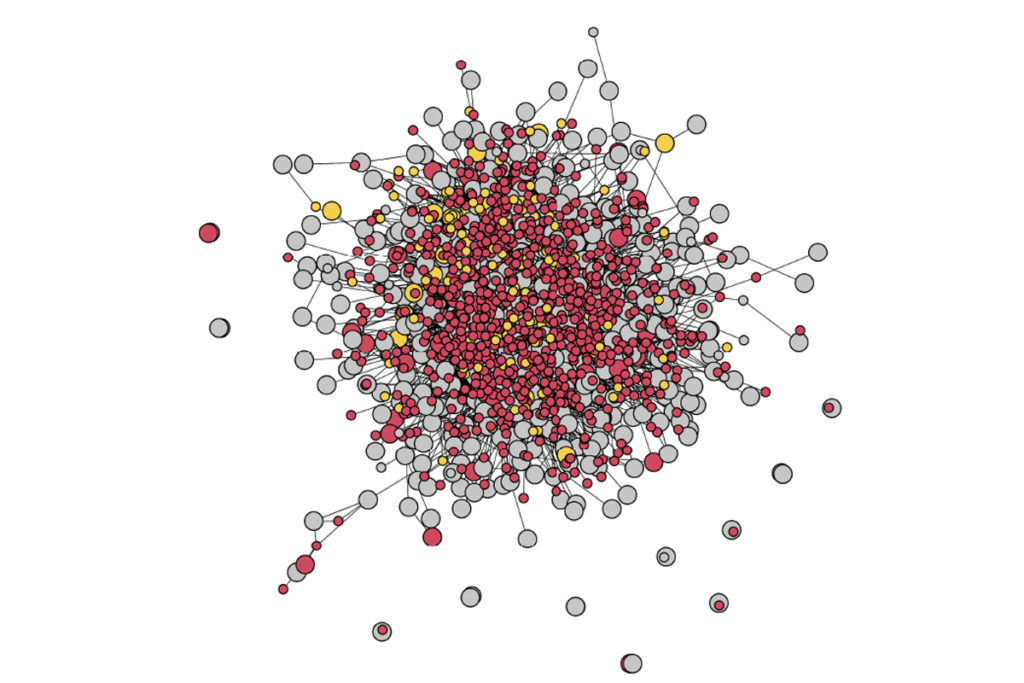
Sequencing study spotlights tight web of genes tied to autism
The findings, shared in a preprint, help to illuminate how a large and heterogeneous group of genes could be involved in autism.
X marks the spot in search for autism variants
Genetic variants on the X chromosome, including those in the gene DDX53, contribute to autism’s gender imbalance, two new studies suggest.
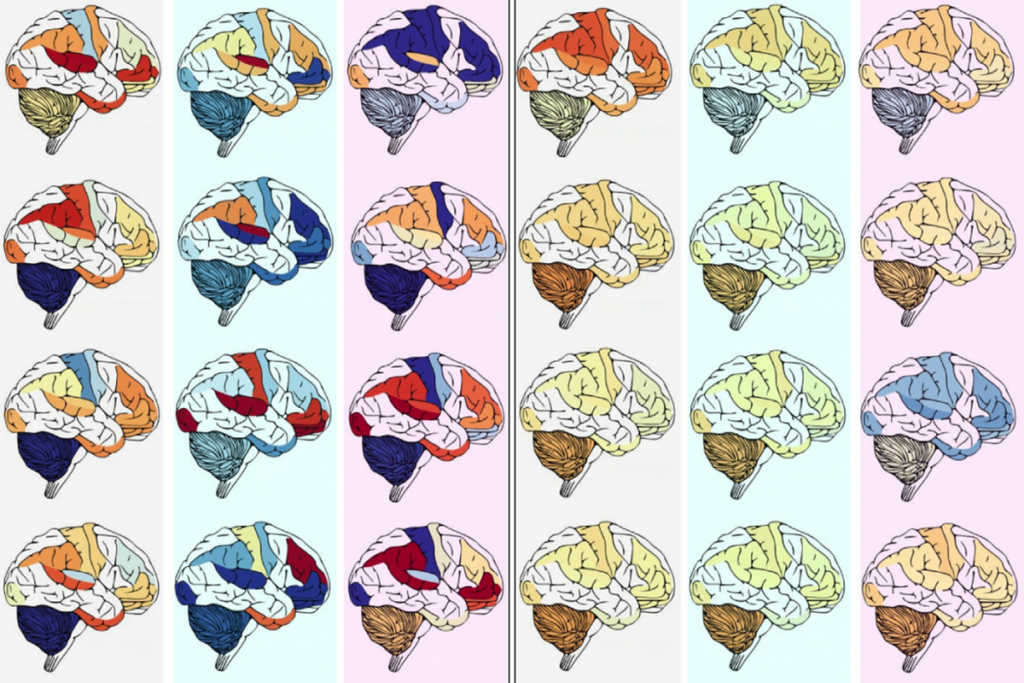
X marks the spot in search for autism variants
Genetic variants on the X chromosome, including those in the gene DDX53, contribute to autism’s gender imbalance, two new studies suggest.
Many autism-linked proteins influence hair-like cilia on human brain cells
The finding may help explain autism’s association with multiple co-occurring conditions that involve cilia defects.
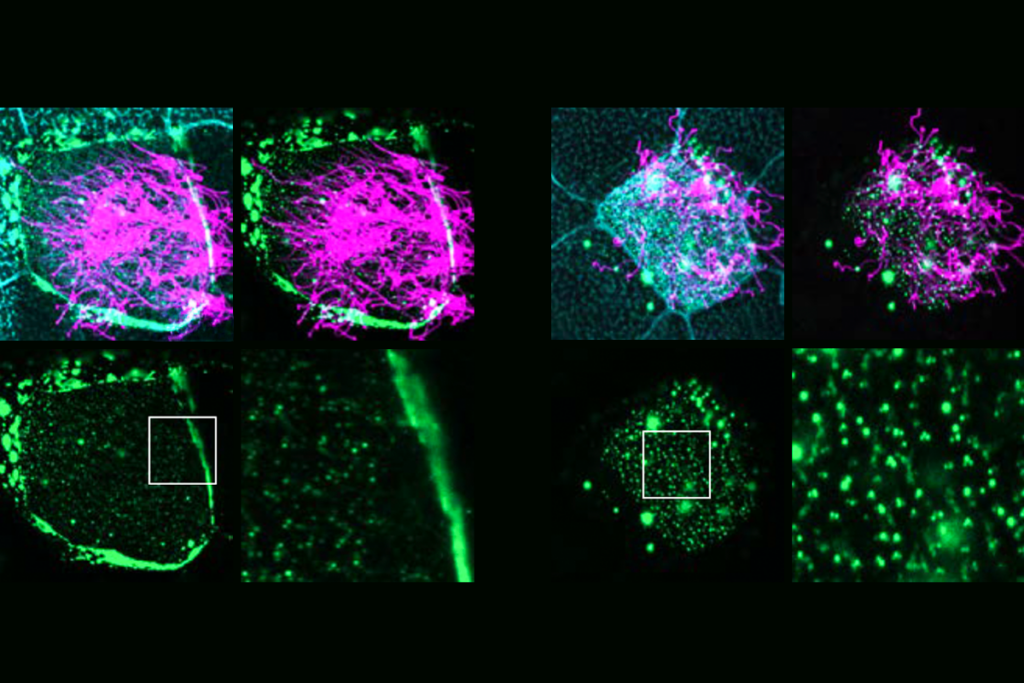
Many autism-linked proteins influence hair-like cilia on human brain cells
The finding may help explain autism’s association with multiple co-occurring conditions that involve cilia defects.
Untangling biological threads from autism’s phenotypic patchwork reveals four core subtypes
People belonging to the same subtype share genetic variants, behaviors and often co-occurring diagnoses, according to a new preprint.
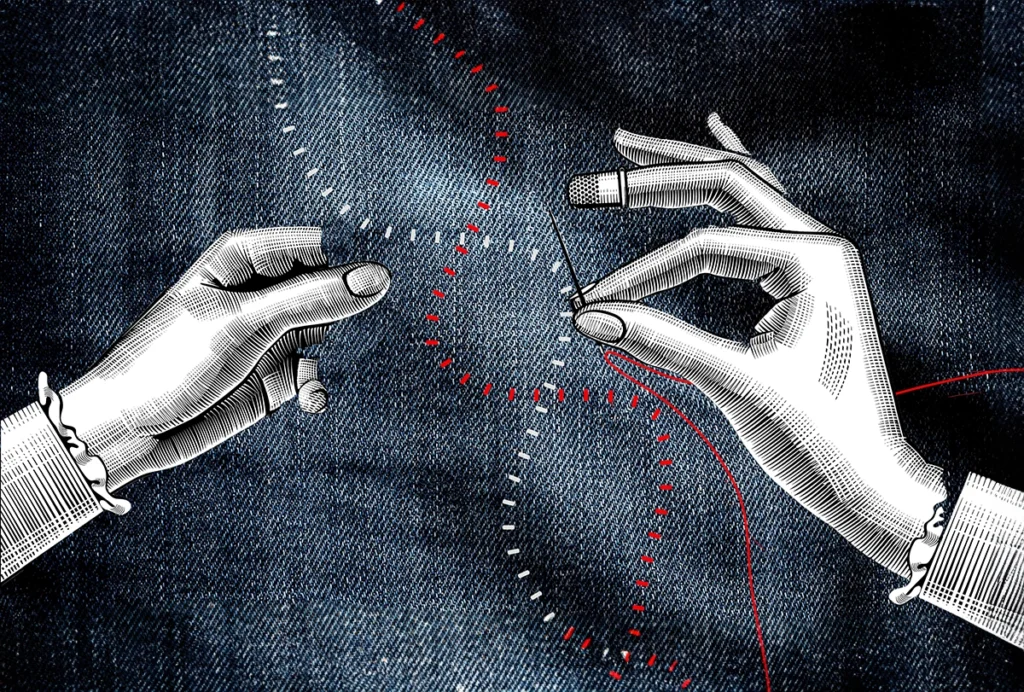
Untangling biological threads from autism’s phenotypic patchwork reveals four core subtypes
People belonging to the same subtype share genetic variants, behaviors and often co-occurring diagnoses, according to a new preprint.
A genetics-first clinic for catching developmental conditions early: Q&A with Jacob Vorstman
A new clinic is assessing children who have a genetic predisposition for autism and other neurodevelopmental conditions—sometimes before traits appear.

A genetics-first clinic for catching developmental conditions early: Q&A with Jacob Vorstman
A new clinic is assessing children who have a genetic predisposition for autism and other neurodevelopmental conditions—sometimes before traits appear.
Giant analysis reveals how autism-linked genes affect brain cell types
Genes that predispose people to autism account for a large portion of the neuronal and glial cell changes seen in those with the condition.
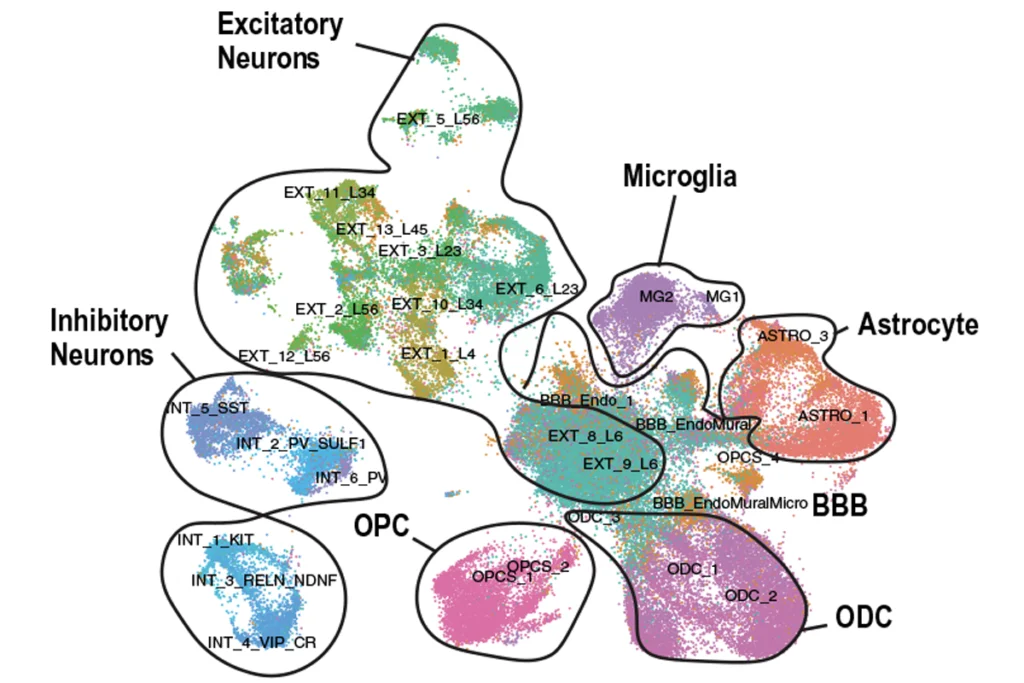
Giant analysis reveals how autism-linked genes affect brain cell types
Genes that predispose people to autism account for a large portion of the neuronal and glial cell changes seen in those with the condition.
Genome structure could be key factor in some forms of autism
Variants in DNA stretches that do not code for proteins may alter the genome’s 3D architecture, influencing the expression of distant genes linked to autism.
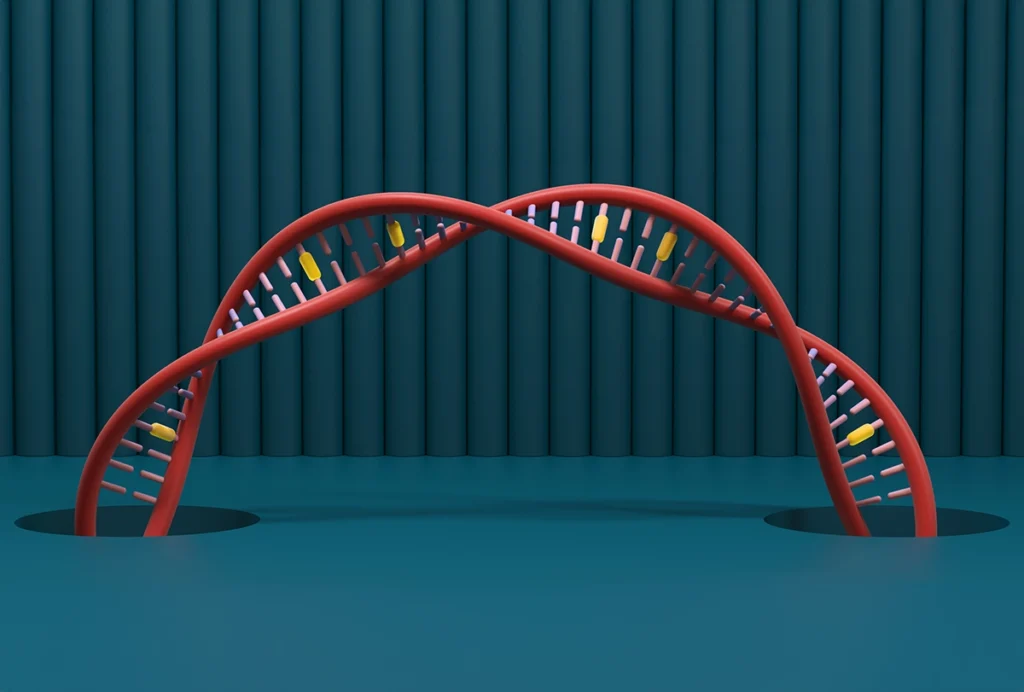
Genome structure could be key factor in some forms of autism
Variants in DNA stretches that do not code for proteins may alter the genome’s 3D architecture, influencing the expression of distant genes linked to autism.
Head size parts autism into two major subtypes
An imbalance in the number of excitatory neurons in early brain development may account for the difference.
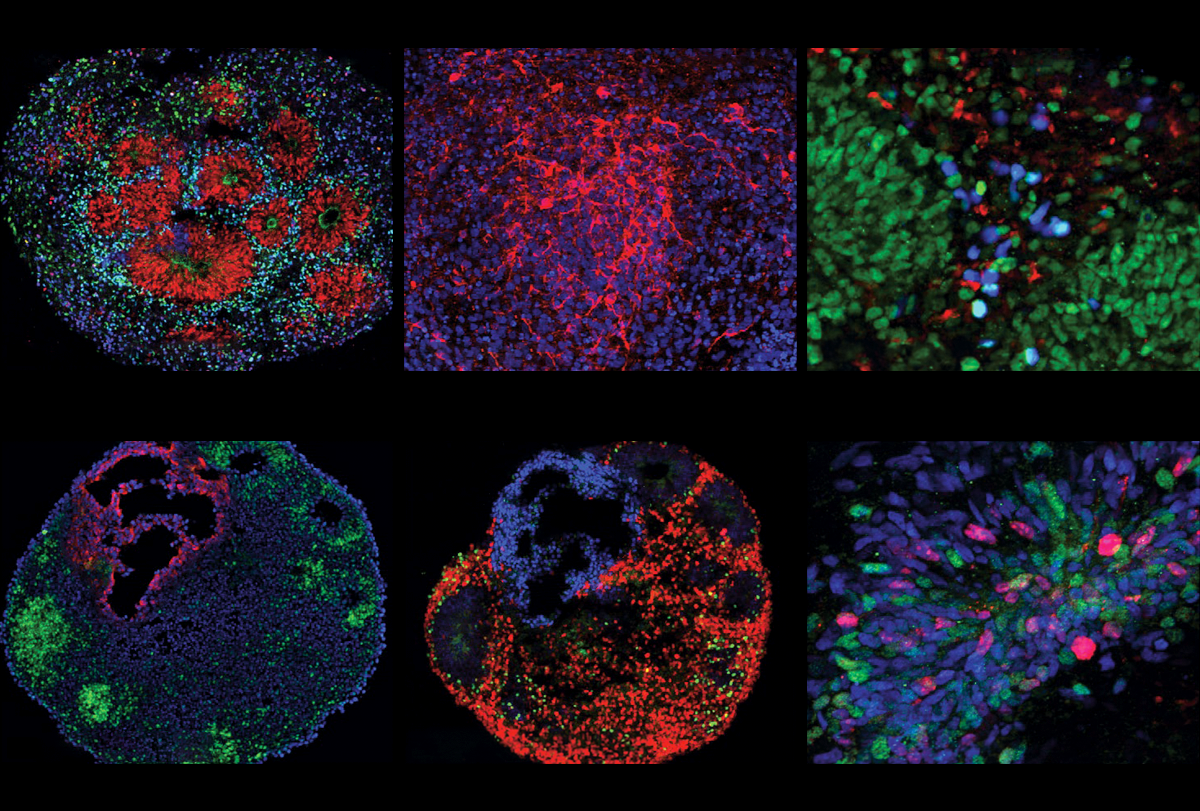
Head size parts autism into two major subtypes
An imbalance in the number of excitatory neurons in early brain development may account for the difference.
Some who lack autism diagnosis carry variants tied to the condition
The variants are associated with slight differences in measures of intelligence, income and employment, but the relationship may not be causal.

Some who lack autism diagnosis carry variants tied to the condition
The variants are associated with slight differences in measures of intelligence, income and employment, but the relationship may not be causal.
Explore more from The Transmitter
Frameshift: Raphe Bernier followed his heart out of academia, then made his way back again
After a clinical research career, an interlude at Apple and four months in early retirement, Raphe Bernier found joy in teaching.

Frameshift: Raphe Bernier followed his heart out of academia, then made his way back again
After a clinical research career, an interlude at Apple and four months in early retirement, Raphe Bernier found joy in teaching.
Organoid study reveals shared brain pathways across autism-linked variants
The genetic variants initially affect brain development in unique ways, but over time they converge on common molecular pathways.

Organoid study reveals shared brain pathways across autism-linked variants
The genetic variants initially affect brain development in unique ways, but over time they converge on common molecular pathways.
Single gene sways caregiving circuits, behavior in male mice
Brain levels of the agouti gene determine whether African striped mice are doting fathers—or infanticidal ones.

Single gene sways caregiving circuits, behavior in male mice
Brain levels of the agouti gene determine whether African striped mice are doting fathers—or infanticidal ones.